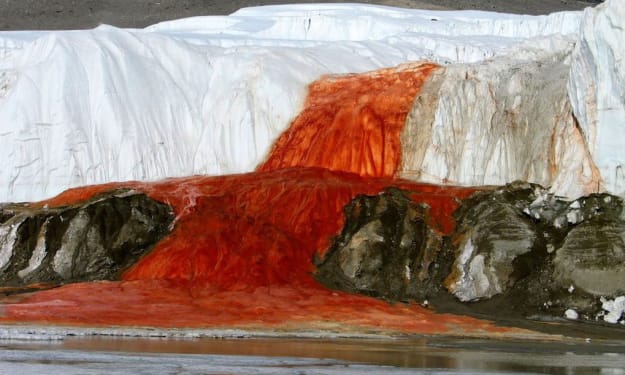When the Sun Goes Dark: A Journey into a World Without Light
Sun

Introduction:
The sun, a constant source of light and energy, plays a crucial role in shaping the ecosystems and conditions on Earth. If, hypothetically, the sun were to suddenly stop producing light, the consequences would be catastrophic for all living beings. In this article, we will explore the potential impacts on wildlife, humans, and the planet itself, delving into the intricate web of dependencies that rely on the sun's radiant energy.
The Immediate Effects on Wildlife:
As the sun sets, signaling the end of the day, numerous creatures in the wild, especially in large savannas like those in Africa, rely on daylight to roam and avoid predators. Zebras, wildebeests, giraffes, and other herbivores need the daylight hours to navigate their surroundings and evade potential threats. If the sun were to suddenly go dark, these animals would be plunged into confusion, becoming easy targets for nocturnal predators.
Nocturnal creatures, on the other hand, adapted to the darkness, would also find themselves bewildered by the abrupt change in the environment. Birds, which typically flock during the day, would become silent and unseen. In areas without bats, insects could thrive, potentially disrupting ecosystems further.
The Human Experience:
For humans, the sudden disappearance of the sun would bring about significant challenges. The most immediate impact would be the rapid drop in temperatures, forcing people to seek shelter and warmth. With daylight gone, the need for artificial light sources would become critical for survival.
The eight-minute window from the sun's disappearance to the absence of its light reaching Earth would provide a brief moment to appreciate the last remnants of sunlight. However, the subsequent darkness would require the use of UV lights to sustain plant growth. Even with such technology, feeding the entire world would become a daunting task.
The Importance of Photosynthesis and Oxygen:
Plants, essential for producing oxygen through photosynthesis, would struggle without sunlight. Crops would fail, and staple foods like bread, dependent on wheat, would vanish. Even marine life, including algae in oceans, relies on photosynthesis as a primary source of oxygen production.
The depletion of oxygen levels in both the atmosphere and bodies of water would have dire consequences. Lakes, oceans, and seas would lack the oxygen needed to sustain marine life, causing a ripple effect throughout the food chain.
Impact on Vitamin D and Herbivores:
Vitamin D, a crucial nutrient for humans, is primarily obtained from the sun. Without sunlight, alternative sources would become necessary but insufficient to meet global needs. Additionally, herbivores, deprived of their natural food sources, would struggle to find sustenance. Cows, horses, and sheep, essential for human livelihoods, would face a dwindling food supply.
Long-Term Consequences:
As temperatures continue to drop, humans would be compelled to seek shelter in underground bunkers equipped with 24/7 heating and UV lights for plant growth. The once-thriving surface would become desolate, with concrete structures collapsing due to oxygen depletion.
In an attempt to maintain oxygen levels, humans would resort to uprooting trees and placing them under UV lights in underground bunkers. However, the surface would eventually freeze over, rendering it inhospitable.
The Disappearance of the Sun:
If the sun were to disappear overnight, the consequences would extend beyond the Earth's surface. Planets within our solar system, once held in place by the sun's gravitational pull, would start to drift randomly. Collisions between planets would become likely, leading to a chaotic rearrangement of the solar system.
Earth, now floating through space without the sun's gravitational influence, would face a new set of challenges. The lack of an atmosphere to trap heat would result in plummeting temperatures, and the planet would become vulnerable to collisions with comets and other celestial bodies.
Evolutionary Changes for Survivors:
In a scenario where the sun simply went dark, the Earth's surface would experience perpetual darkness. Only bacteria and possibly tardigrades, microscopic creatures known for their resilience, could survive on the surface. Over time, these survivors might evolve into larger species, dominating the desolate landscape.
Humans, forced to adapt to underground conditions, would likely develop larger eyes to capture as much available light as possible. Skin pigmentation would lighten due to the absence of sunlight, and enhanced hearing would become crucial in the echoing underground environment. Despite these adaptations, giant tardigrades could pose a threat, becoming the dominant species on the surface.
A New World Order:
As humans retreat to underground shelters, cities and colonies would be established in vast networks of tunnels. The once-frozen oceans on the surface would be home to colossal deep-sea creatures, adapted to living in perpetual darkness. Some of these creatures might even breach the ice, further challenging the remnants of human civilization.
Conclusion:
The hypothetical scenario of the sun ceasing to produce light leads us on a journey through a world plunged into perpetual darkness. The intricate web of dependencies on sunlight, from plant photosynthesis to the survival of herbivores and humans, highlights the delicate balance of life on Earth. While this scenario is purely speculative, it serves as a reminder of the profound impact the sun has on our planet and the necessity of preserving our delicate ecosystem.





Comments
There are no comments for this story
Be the first to respond and start the conversation.